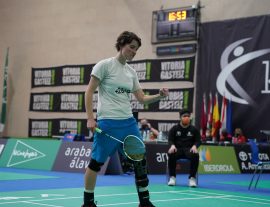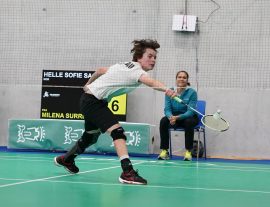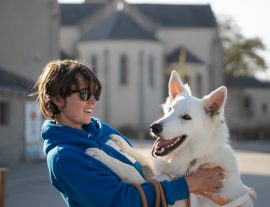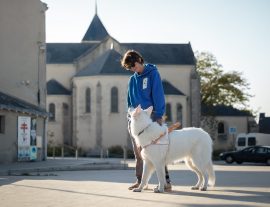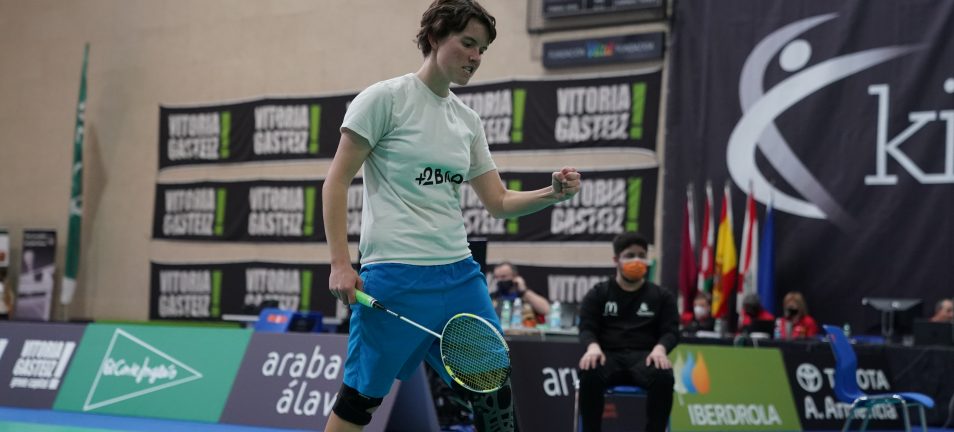
“Eugene is trained to create what is called a ‘medical alert’. He is able to smell my blood and identify a problem 10 minutes before I could have a seizure. He will cover me and do some deep pressure therapy. With the weight of his body, he will calm me down, as well as my heart rate and blood pressure to stave off the meltdown. That way, I know I’m about to have a meltdown and can manage it better, seeking medical help if I need to,” explains Surreau of her dog’s role in her life.
“Eugene is my service dog and best friend.”
Autism is a complex, lifelong developmental disability that typically appears during early childhood and can impact a person’s social skills, communication, relationships and self-regulation. A number of triggers can set off a reaction.
Surreau describes her catalysts as loud noises. Before a match, she ‘blocks out noise, wanting silence’, in preparation. Eugene aids when she’s not on court.
“If I’m in a noisy place, I can go outside and stay calm,” admits Surreau.
“Eugene is trained to perform a ‘medical response’. He will cover me and do some deep pressure therapy. With the weight of his body, he will calm me down, as well as my heart rate and blood pressure to stave off the meltdown.
“He can also prevent dangerous behaviour like me harming myself by putting his head on my legs. That’s his most important job.
“Then there’s the guiding side when I cannot deal with too much light and sound. It can be a big challenge.”
But with a superhero dog, no challenge is too big for the duo.
A salt worker by day, accompanied of course by Eugene, the shuttler, who made her Para badminton debut earlier this year, decided to set up her own association training service dogs for those with specific autism needs at the end of 2020.
“In France, training service dogs for those with autism needs means waiting up to three years, so I decided with my mates that we would do this ourselves,” Surreau reveals.
“We are training two dogs at the moment and I hope to have more. As long as the dogs are quite large, any breed can be trained.
“I also try to balance my job and Para badminton career. We love what we do. It’s something really important for autistic people.”



















